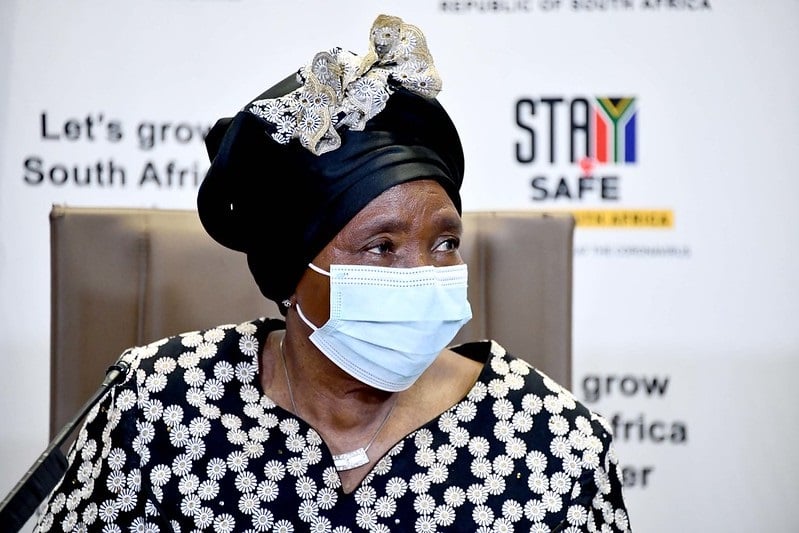
- The government's decision to impose Level 4 lockdown regulations was procedurally fair.
- The SCA dismissed an application by a group of Cape Town residents, who challenged the constitutionality of the lockdown regulations.
- The court found the NCCC's policy decision to be valid.
The government's decision to impose Level 4 lockdown regulations was made in a procedurally fair manner and in terms of a "rational decision-making process".
Hearing an appeal of a Western Cape High Court ruling, the Supreme Court of Appeal (SCA) dismissed an application by a group of concerned residents, who challenged the lawfulness of the establishment of the National Coronavirus Command Council (NCCC) and the validity of the lockdown rules.
The group of residents from Cape Town argued that their freedoms were curtailed due to the lockdown regulations.
The residents are Duwayne Esau, Neo Mkwane, Tami Jackson, Lindo Khuzwayo, Mikhail Manuel, Riaan Salie, Scott Roberts and Mpiyakhe Dlamini.
Respondents in the matter included President Cyril Ramaphosa, Cooperative Governance and Traditional Affairs (Cogta) Minister Nkosazana Dlamini-Zuma and Trade, Industry and Competition Minister Ebrahim Patel.
In his ruling, Judge Clive Plasket said the relief claimed by the group of residents was "wide-ranging and included an attack on the lawfulness of the establishment and functioning of the NCCC".
"The NCCC is a Cabinet committee. That is not in dispute. It is also not in dispute that the Cabinet may function through committees and that decisions taken by Cabinet committees bind the entire Cabinet, as much as decisions taken by the entire Cabinet in a Cabinet meeting. The result is that the NCCC's policy decision was a valid decision of the Cabinet," Plasket said.
READ ALSO | SA's Covid-19 lockdowns costing migrant workers their livelihoods
The judge said the Disaster Management Act's main purpose is to provide "an integrated and coordinated disaster management policy".
The policy, Plasket said, is meant to reduce the risk of disasters, mitigating the severity of disasters, and emergency preparedness.
He said: "From the inception of the state of disaster, it appears that the Cogta minister consulted widely with Cabinet colleagues, officials and experts.
"She and her colleagues consulted with a range of interest groups as well. Secondly, many members of the public made their views known to the Cogta minister in one way or another concerning the lockdown and the regulations. The public was requested to submit comments by 12:00 on 27 April 2020. The Cogta minister said, however, that many comments were received after the deadline, and were considered nonetheless.”
The group of residents challenged the validity of the Level 4 regulations on procedural grounds as well.
They argued that the public participation process was inadequate - which, according to them, resulted in procedural unfairness.
"The effect, potential or real, on the rights, lives and livelihood of every person subject to them is drastic," the judge said, adding:
The group did score a small victory, but "extremely limited as described by the judge, in that the appeals court found the regulations which limited exercise and the sale of hot cooked food in stores were "invalid".
On exercise, Plasket found the regulation "is not capable of justification because it was not rational or proportional".
Short period
"The purpose of imposing a short period of time during which people could exercise was justified by the Cogta Minister solely on the basis of it being easier to police than a longer period. But, on the other side of the coin, the restriction undermined the very purpose of the movement regulations, namely to prevent people from congregating, and thus increasing the possibility of the spread of Covid-19 infections.
"Instead, regulation 16(2)(f), by imposing a three-hour window within which everyone could exercise, had the effect of concentrating people, particularly in densely populated areas, or areas considered amenable for walking, running or cycling," he wrote.
Regarding the sale of hot food in store, Plasket found the minister's attempt to stop people gathering at counters, waiting for hot food, was "not proportional to the mischief that the Cogta minister sought to avoid".
"It is arbitrary in the extreme to draw a distinction, to put it at its crudest, between a hot piece of chicken and a cold piece of chicken. It is premised on the idea that hot food will be prepared while customers wait, whereas often hot food has been pre-prepared and all that is required is for the food to be handed to the customer, in the same way that cold food would be."
No costs order will be made against the applicants.
